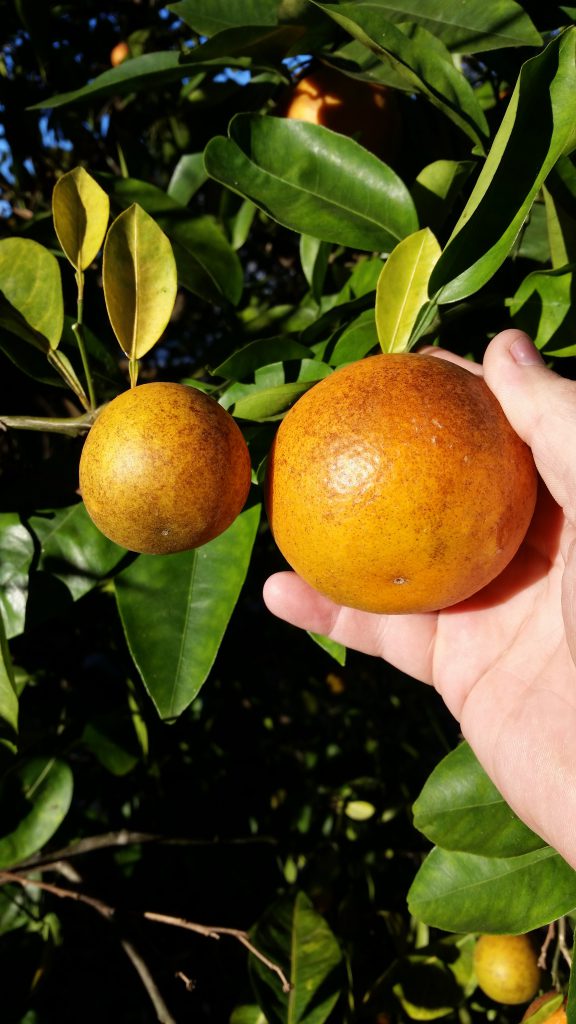Citrus greening remains a focal point of research at the University of Florida/IFAS. Florida’s citrus producers are counting on research to help sustain what’s left of an industry decimated by Huanglongbing (also known as HLB or citrus greening).

Scott Angle, Vice President for Agriculture and Natural Resources at the UF/IFAS, understands the ramifications if improved management options aren’t available soon.
“Citrus greening has obviously devastated the industry in this state. We’re down to less than half of production. That’s despite having spent almost a billion dollars on this disease. To me, it’s hard to imagine, we spend a billion dollars, and we can’t solve a problem,” Angle said.
“It is so complex that it’s just been hard to find those tools that will allow us to manage the disease better. At this point, I don’t even know that we’re looking for a cure. We’re just looking to try to manage the citrus trees in a way that they can hang on longer. So when we do find that cure, that silver bullet that’s not obvious to us at this point; then we can keep those farmers in business.”
Disease Background
Click here for more information about the disease that is transmitted by the Asian citrus psyllid. Symptoms include asymmetrical yellowing of leaves and leaf veins. Later symptoms include twig dieback and decreased fruit production. What fruit a tree produces is often small, lopsided and unmarketable. Fruit will also drop prematurely from infected trees.
Examining the Problem at All Angles
UF/IFAS is examining the problem from multiple angles.
Led by Claudio Gonzalez, a UF/IFAS microbiology and cell science professor, a team of plant pathologists, horticulturists and citrus breeders have identified new management tactics that have slowed the spread of the bacterium.
Ute Albrecht, Ramdas Kanissery and Sarah Strauss, assistant professors at the UF/IFAS Southwest Florida Research and Education Center, are collaborating with University of California-Riverside on a $10 million grant to examine root decline associated with trees infected with citrus greening.
In another research focused on HLB, Lorenzo Rossi, an assistant professor at the UF/IFAS Indian River Research and Education Center (IRREC), and Jawwad Quershi, an assistant professor at UF/IFAS SWFREC, will collaborate with the U.S. Department of Agriculture Agricultural Research Service on a grant to examine different ways to deliver therapeutic growing methods to citrus growers.
“We’re going to continue to help citrus farmers stay in business until we can find longer term cures for this. We’ve got all kinds of things we’re looking at; proteins we might spray in the tree that might interact with the psyllid that can spread the organism. We’ve got other people looking at breeding efforts to try to find rootstocks that might be a little more resistant to it,” Angle said. “Then we’re especially looking at nutrition and irrigation as ways to help keep these plants alive for just a little longer, hoping for that day when the cure is here.”









